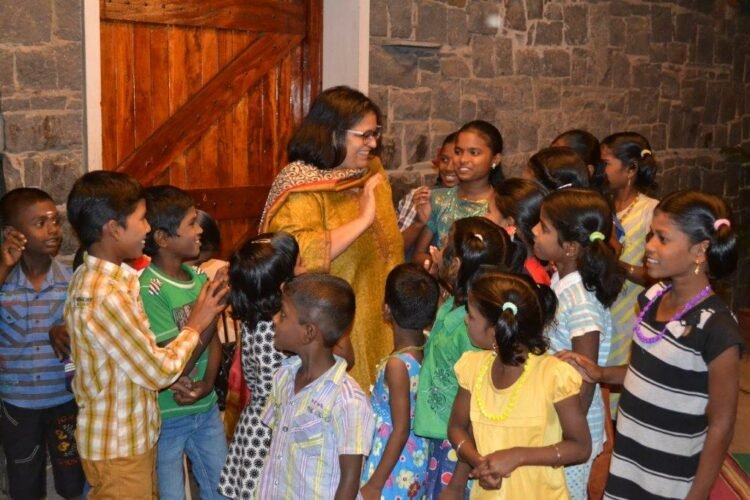While taking care of physical needs of a child like quality health care, education, housing is important equally important is uplifting and protection of these children. Anuja Bansal, Secretary General, SOS Children’s villages, India ensures that parentless children and children at risk of losing parental care receive this support. In an interview with Apresh Mishra & Shubhangi Agrawal ,she talks about the situation parentless children in India and SOS Children’s Villages, India. Excerpts:
Please tell us about SOS Children’s Villages Project
Founded in 1949 in Austria, SOS Children’s Villages began its operations in India in 1964. The founder, Dr Hermann Gmeiner conceptualised ‘recreation of families for the children’, who had lost their parents during the war. SOS Children’s Villages of India works with children who have lost parental care either through abandonment or for any other reason. For such children, there is loss of education, loss of healthcare, loss of shelter but more importantly, there is a loss of sense of belonging to a family and this is what we are trying to address. We recreate families through our children’s villages. We are housing over 7000 children across the country.
What is the situation of the children in the country with regards to safety?
Today, there are two crore children in the country who have lost their parents. These children need to be urgently taken care of as they are vulnerable to physical, mental and sexual abuse. If left uncared, they will not get right education, proper healthcare, and most importantly they won’t have a shelter and a family. Family-like care needs to be fundamental in ensuring the safety and protection of the children.
Community-level interventions are equally important to ensure safety of children. How are you addressing this?
We run a preventive programme known as Family Strengthening Programme (FSP) to ensure safety of children who are at risk of losing parental care, either because of poverty or other family circumstances. We work with communities to support families in such communities so that the children are not devoid of necessary healthcare and education. Through the programme, we are serving more than 24,000 children.
We consider mothers as a primary caregiver. We provide them with livelihood support. We capacitate them both in terms of market linkage and backward linkage. We provide them with financial literacy so that they own a bank account and Adhar card and they know how to operate. As a result, the income of the families we are working with has grown more than 250% in the past five years.
We provide vocational training to young people who had dropped out of their school with the objective of getting them employed to strengthen their families.
Strengthening the community is another strategy. We have initiated ‘Bal Panchayat’, where the children from the entire community come together to raise the voice on issues, such as child marriage, abuse, and school dropout.
We have also initiated ‘Nari Shakti’, groups of women to address the issues affecting women in the society.
So these two initiatives and local government bodies, ensure that there is a safe and favorable environment for children as well as for women.
What we can learn from Muzaffarpur shelter home case in Bihar and how SOS Children’s Villages can be a model of replication?
There is learning from all these cases. There is a need for a very strong child protection system in place and a very strong monitoring process towards the same.
At SOS children’s villages, we have a strong child protection policy. We have a single focal point which receives calls from anybody with respect to child protection. We respond to child protection issues that happen at any of our projects. Our national child protection team takes immediate action to safeguard children under our care.
There has to be a capacity building for people engaged in the grievance redressal system and child care centres.
At SOS India, we regularly do capacity building of children apart from the human resource involved in the system through counselling, education and skilling programmes.
We also work for governments across the states and offer technical training towards strengthening the capabilities of people involved in childcare institution or government-run organization. Our experience of running SOS India villages has brought forth many best practices and thus, we are able to transfer this knowledge to the government child care centres.



























